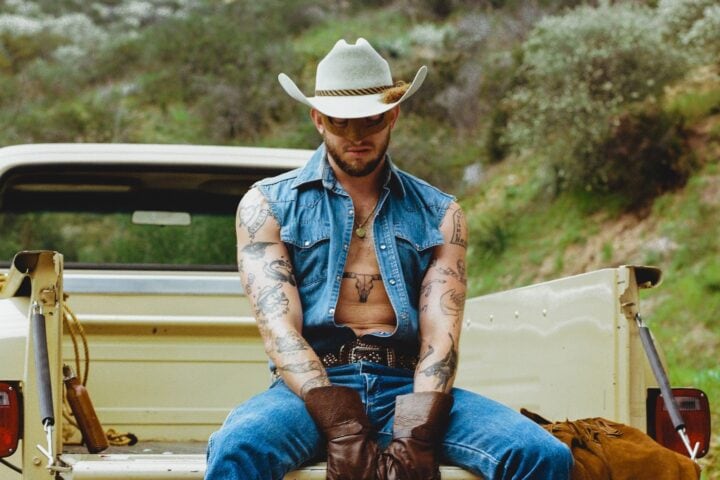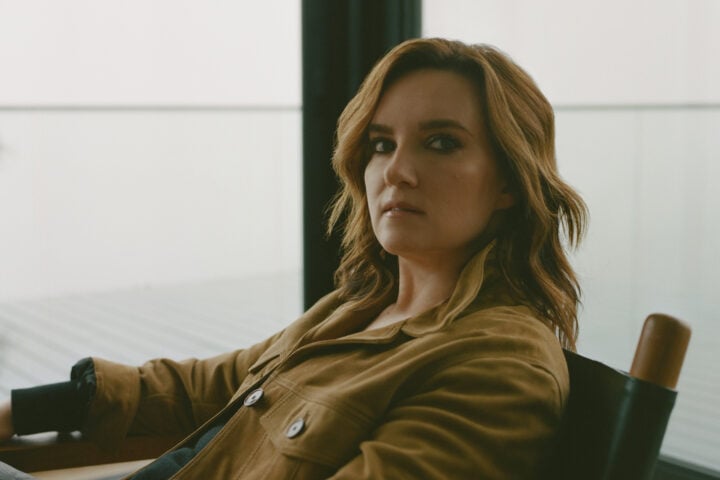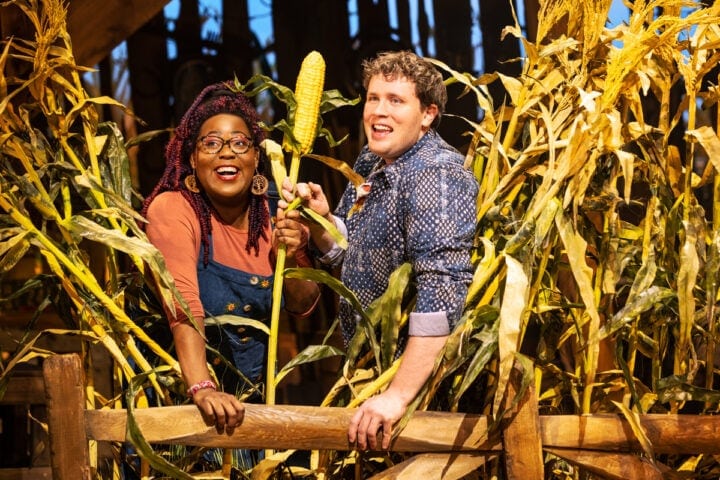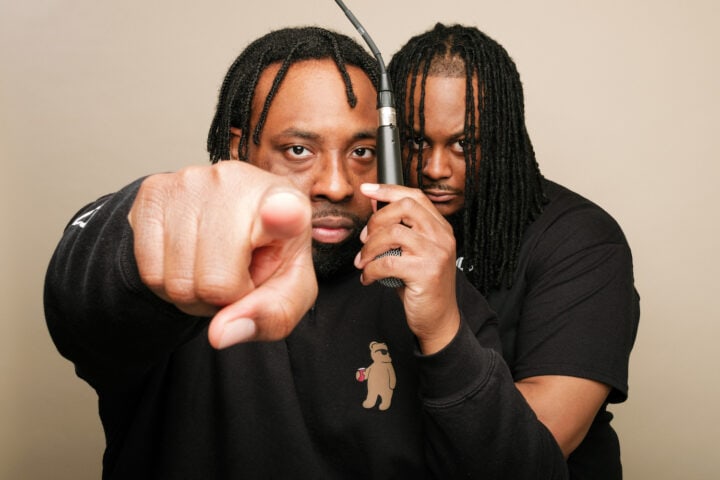The late Laura Gilpin’s landmark poem “The Two-Headed Calf” struck an enduring chord with both outsiders and those determined to find beauty in a cruel world. In just nine lines, Gilpin speaks to the experience of the titular animal, deemed a “freak of nature” and unlikely to survive a single day, and locates magic in the innocence of its brief existence.
It’s no surprise, then, that Gilpin’s poem resonated with Willi Carlisle, a queer country-folk singer-songwriter whose music makes space for the stories of those who, like him, have been traditionally ostracized from the genre. On “Two Headed Lamb,” a track from his third album, Critterland, Carlisle riffs on Gilpin’s poem, with the added perspective of a farmer who’s oblivious to the beauty of things that are “too strange to survive.”
The opening title track similarly offers solidarity with those deemed unacceptable by this world, though it does so in a more joyous fashion. An opening arrangement of banjo and harmonica gives way to Critterland’s funny, self-assured first couplet: “I could’ve been a businessman, I was too hot-headed/Plus I never had the money, plus I kinda got arrested.”
“Critterland,” which starts off big and bold and becomes only bigger and bolder as it progresses, is stadium-sized country for those who could never imagine a stadium filled with people like them. Deemed a “queer and a communist,” Carlisle fantasizes about seeking refuge in the natural world. Rather than abandoning an exclusionary society, though, he urges listeners to stand their ground and live unapologetically, because “love is a burden if it isn’t brave.”
Carlisle sometimes finds silver linings in life’s bleakest moments, while at others he discovers that rock bottom has a basement. Underpinning it all is an unwavering commitment to living authentically. On “The Arrangements,” the singer looks grief in the eye, refusing to shy away from its contradictions and unwelcome realizations. Reflecting on his father’s passing, the most conciliatory message he can offer is, “It’s still sad when bad men die.” Already painful memories take on even sharper edges on the track (“I hear drunk footfalls through bedroom walls…but I’m my own father now”), but the process of excising these demons seems to give way to gratitude: “He was fulla shit and I’m over it/I’m glad that I’m alive.”
Carlisle’s most powerful one-two punch arrives toward the end of Critterland. The first, “Jaybird,” is a bluegrass-tinged ode to a friend who committed suicide that confirms Carlisle’s commitment to radical honesty, addressing the song’s subject with equal parts toughness (“You never had the guts to be the protagonist”) and tenderness (“Well, you finally found home”). “When the Pills Wear Off,” meanwhile, begins with a stark admission (“Drove 200 miles for six inches of love”) and an ominous reference to the death of a lover. As Carlisle delivers a mournful disclosure—“I don’t think he could have known that it was fentanyl”—the track’s string arrangement comes to a screeching halt, and we’re briefly agonized in suffocating silence.
The album’s closing track—the seven-minute, almost entirely a cappella, and mostly spoken word “The Money Grows on Trees”—seems deliberately confounding, but it proves to be a fitting final note. Embellishing David Mac’s book When Money Grew on Trees to give its characters a more triumphant ending, Carlisle charts the highs and deep lows of the much-romanticized outlaw lifestyle. His delivery ranges from a traditional folk style of singing to near-rapping; at times he delivers his words with the careful precision of a poet, while at others he booms like a fire-and-brimstone-style pastor. Challenging, startling, and deeply powerful, this rallying closer confirms what the previous nine songs already suggested: that Carlisle is a singular artist and that Critterland is a worthy addition to the canon of country-folk classics.
Since 2001, we've brought you uncompromising, candid takes on the world of film, music, television, video games, theater, and more. Independently owned and operated publications like Slant have been hit hard in recent years, but we’re committed to keeping our content free and accessible—meaning no paywalls or fees.
If you like what we do, please consider subscribing to our Patreon or making a donation.





